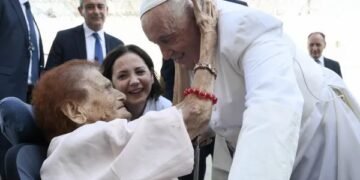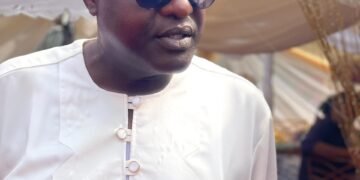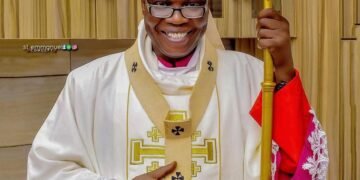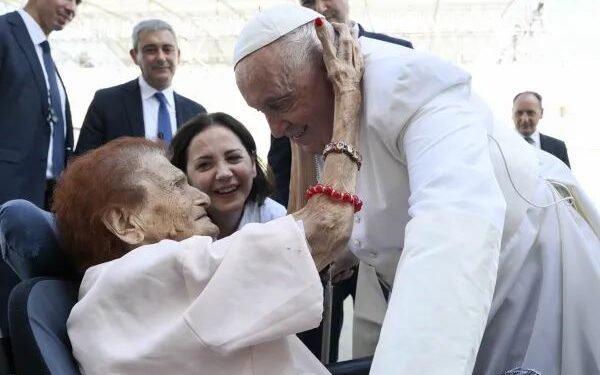By Charles Igwe
During a visit to Trieste in northern Italy on July 7, Pope Francis underscored the importance of recognizing God’s presence in the suffering of the weakest among us, particularly migrants and prisoners. Addressing a Mass for approximately 8,500 people in Unità d’Italia Square, the Pope spoke of the need for a faith that is deeply rooted in humanity and capable of touching and healing lives.
“We need the scandal of faith,” Pope Francis said. “A faith rooted in the God who became man and, therefore, [is] a human faith, a faith of flesh, which enters history, which touches people’s lives, which heals broken hearts, which becomes a leaven of hope and the seed of a new world.”
The Pope called for a faith that awakens consciences and addresses the wounds of society, challenging the complacency often induced by consumerism. He urged Catholics to embrace a faith that is “a thorn in the flesh of a society often anesthetized and stunned by consumerism.”
Pope Francis was in Trieste for the closing of the 50th Social Week of Catholics, an annual event promoting Catholic social doctrine. This year’s theme was democracy. The event, held from July 3–7, gathered about 1,200 participants. After addressing attendees at a nearby conference center, the Pope traveled to Unità d’Italia for the Mass, concelebrating with nearly 100 bishops and 260 priests.
Reflecting on the humanity of God in his homily, Pope Francis emphasized that God’s presence is most evident in the suffering and marginalized. “[God’s] presence is revealed precisely in the faces hollowed out by suffering where degradation seems to triumph. The infinity of God is hidden in human misery,” he said. He questioned why people are not scandalized by the suffering and injustices in the world, including the plight of migrants and prisoners.
Trieste, a port city and common arrival point for migrants via the Balkan route, has seen a rise in migrant children. Earlier in the day, Pope Francis met with a group of about 150 migrants and people with disabilities. He also addressed the issue of prison overcrowding in Trieste, highlighting the need to care for and support those who are incarcerated.
The Pope concluded the Mass with the Angelus prayer, noting Trieste’s role as a welcoming city for migrants and a crossroads between Italy, Central Europe, and the Balkans. He emphasized the challenge of balancing openness with stability and identity.
After the Mass and Angelus, Pope Francis departed for the Vatican, arriving just before 2 p.m.















































